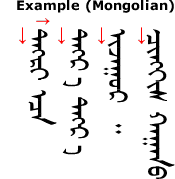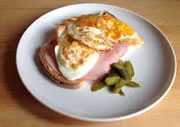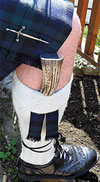After writing yesterday’s post I was thinking about the Czech word hlas [ɦɫas] (voice, vote) and realised that it is quite similar to the Welsh word for voice, llais [ɬais]. I wondered it they share the same root.
Hlas comes from the Proto-Slavic *golsъ (voice), from the Proto-Balto-Slavic *galsas (voice), from the Proto-Indo-European *golHsos, from *gels- (to call)
The words for voice in other Slavic languages come from the same root: Old East Slavic: голосъ (golosŭ); Belarusian: голас (hólas); Russian: голос (gólos) and глас (glas – archaic/poetic); Ukrainian: голос (hólos); Old Church Slavonic: гласъ (glasŭ); Bulgarian: глас (glas); Macedonian: глас (glas); Serbo-Croatian: гла̑с; Slovene: glas; Kashubian: głos; Polish: głos; Slovak: hlas; Lower Sorbian: głos; Upper Sorban: hłós.
Also from the same root are the Latin gallas (cockrel); Romani glaso (voice); Romanian glas (voice, vote); Old Norse kalla (to call); English call, Dutch kallen (to chat, talk); German kallen (to scream, talk loudly, talk too much); Lithuanian galsas (sound, echo); Welsh galw (to call) and llais (voice); and possibly the Irish and Scottish Gaelic glaodh (to cry, shout).
Sources: Wiktionary



